Northeastern summit on innovative public health technology is an important first step to fixing systemic flaws
“Catalyzing Interdisciplinary Innovation in Public Health Technology” brought together policy, research and industry leaders from across the country.
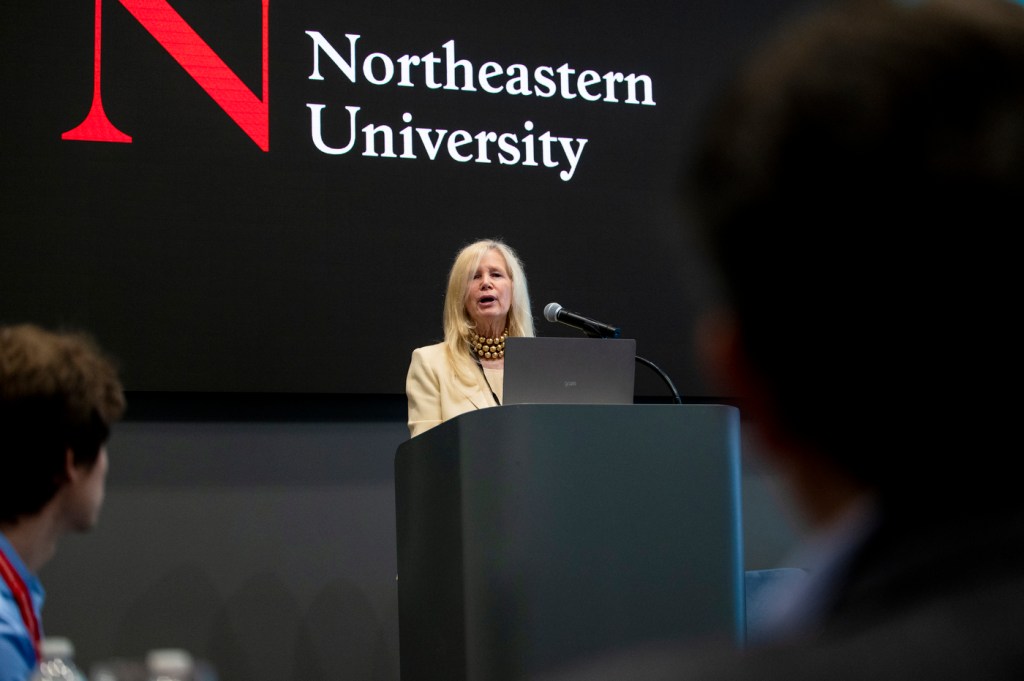
When the COVID-19 pandemic hit, the nation’s public health infrastructure was underprepared, to say the least.
Public health officials relied on fax machines to deliver test results, hand wrote people’s vaccination status on small pieces of cardboard and discovered that stockpiles of masks and gowns to protect health care workers were insufficient.
“We really have to re-invent public health,” said Alessandro Vespignani, director of the Network Science Institute and Sternberg Family Distinguished Professor at Northeastern. “This requires an all-hands on deck approach.”
It was in that spirit that Northeastern held a summit Tuesday on “Catalyzing Interdisciplinary Innovation in Public Health Technology.” The all-day, invitation-only event at the university’s EXP research complex on the Boston campus brought together policy, research and industry leaders from across the country.
Keynote speakers included Rear Adm. Susan Blumenthal, M.D., former U.S. assistant surgeon general and White House adviser; and Renee Wegrzyn, director of the newly established U.S. Advanced Research Projects Agency for Health (ARPA-H).
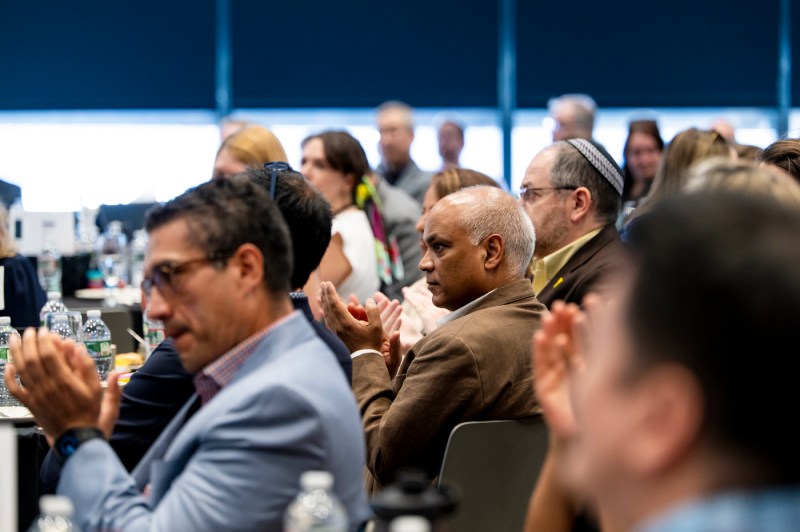
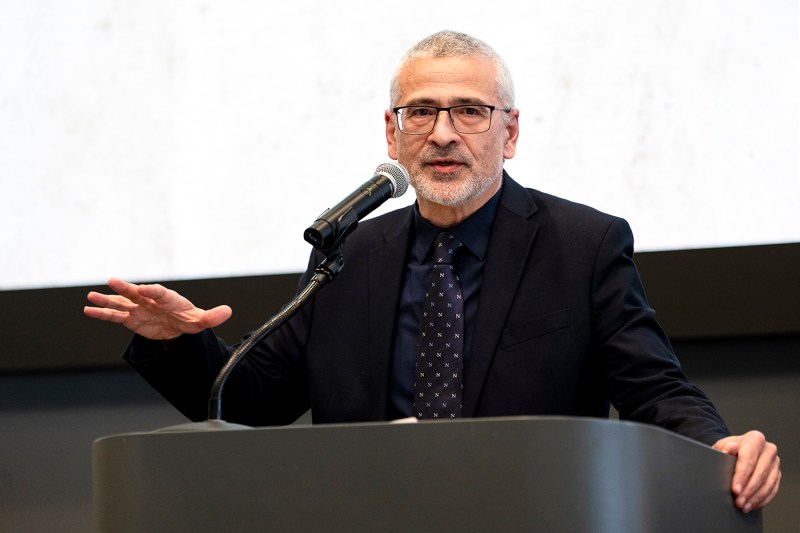
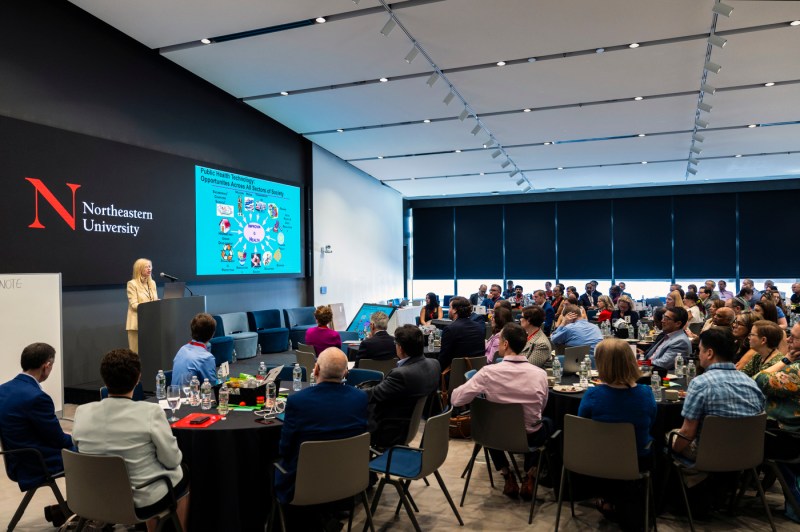
They talked about the need to bring underfunded health care initiatives into the 21st century.
“We’re at a transformational moment, that tipping point between peril and progress in public health, a field that has been one of humanity’s crowning achievements over the past century by expanding the lifespan and quality of life for so many people,” Blumenthal said.
“Public health initiatives have improved sanitation, access to clean water and vaccines and reduced death from preventable causes such as tobacco consumption and motor vehicle crashes,” Blumenthal said.
Featured Posts
More recently, responses to the pandemic included the development and dissemination of mRNA vaccines and advances in waste water testing and telehealth.
“Public health saved your life today. And you don’t even know it,” Blumenthal said.
But while public health focuses on prevention and protecting the health of millions of people in a population, traditional medicine — which treats one patient at a time — gets the glory and the funding, Blumenthal said.
She said it’s time to repair the disconnect between public health and fields as diverse as engineering, computer sciences, robotics, analytics and physics to address problems including disease prevention, mental health, obesity and food insecurity.
“We need a new breed of practitioners,” including engineers and AI experts, said Vespignani, who made closing remarks in the afternoon.
An expert on data-driven computational modeling of epidemic and spreading phenomena, Vespignani recently was named head of a Centers for Disease Control and Prevention-funded innovation center called EPISTORM, which is helping detect and prepare the U.S. for the next outbreak of disease, especially in rural areas.
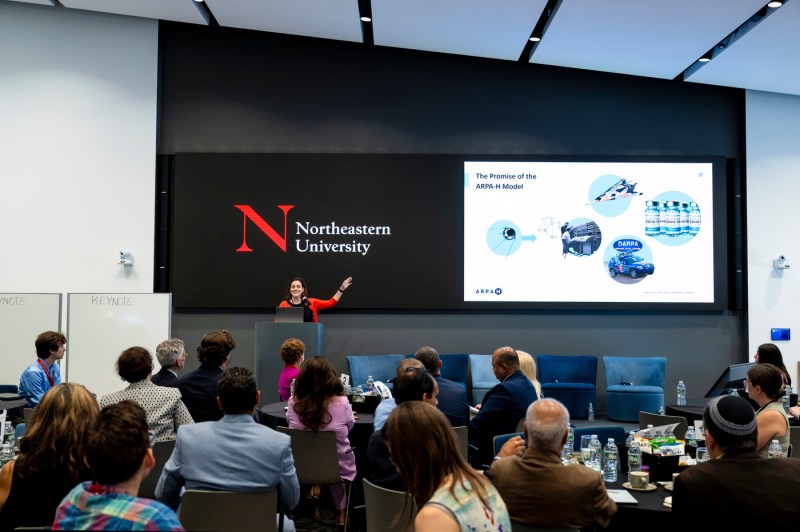
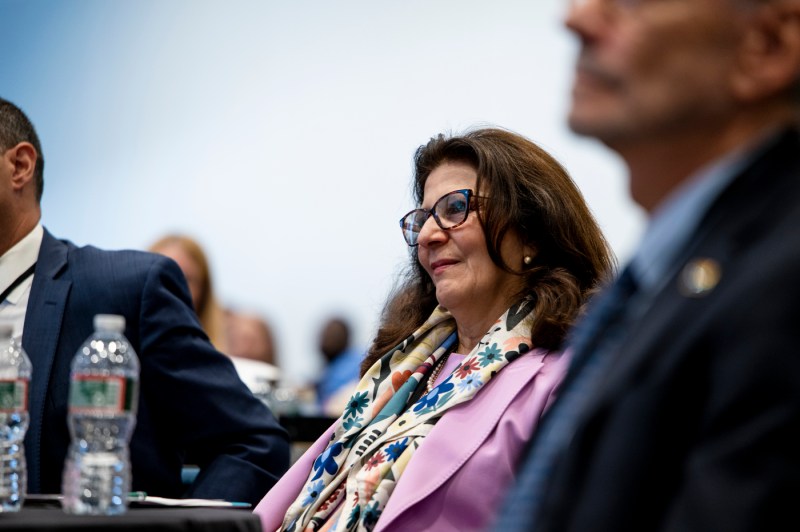
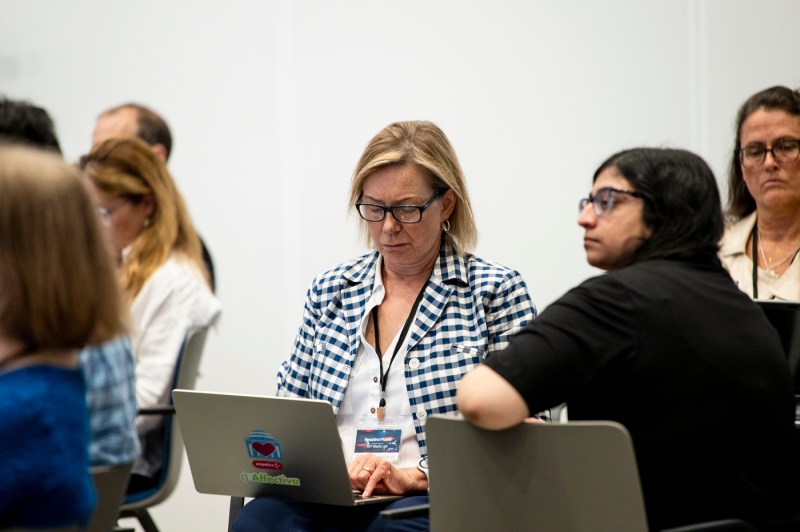
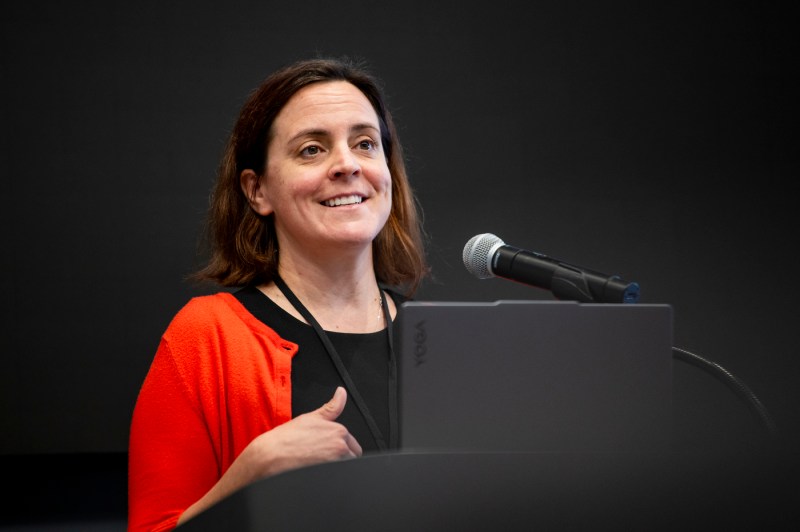
“We need to have an interdisciplinary approach. All of that is part of the discussion here today. There will be many more,” Vespignani said. He said Northeastern was a good place to hold the inaugural summit because the university “is becoming a synonym for innovation and interdisciplinary” collaboration.
“The areas of opportunity are infinite,” said Dr. Carmen Sceppa, dean of Bouve College of Health Sciences and summit co-chair.
Technology including artificial intelligence can be harnessed for everything from making surveillance and response more equitable to monitoring threats, addressing climate change, accelerating vaccine development and solving supply chain problems, she said.
Sceppa said the need for a multidisciplinary approach was the reason Boston hospital officials and leaders of biotech companies such as Ginkgo were invited to the summit, along with Dr. Rochelle Walensky, former director of the CDC; John Auerbach, former commissioner of the Massachusetts Department of Public Health; and Dr. Bisola Ojikutu, executive director of the Boston Public Health Commission.
Wegrzyn encouraged summit participants to apply for funding and to be program managers of ARPA-H projects designed to build scalable solutions and resilient systems for addressing public health problems.
A federal funding agency signed into law in 2022, ARPA-H focuses on breakthrough health technology at population levels but not individual diseases.











